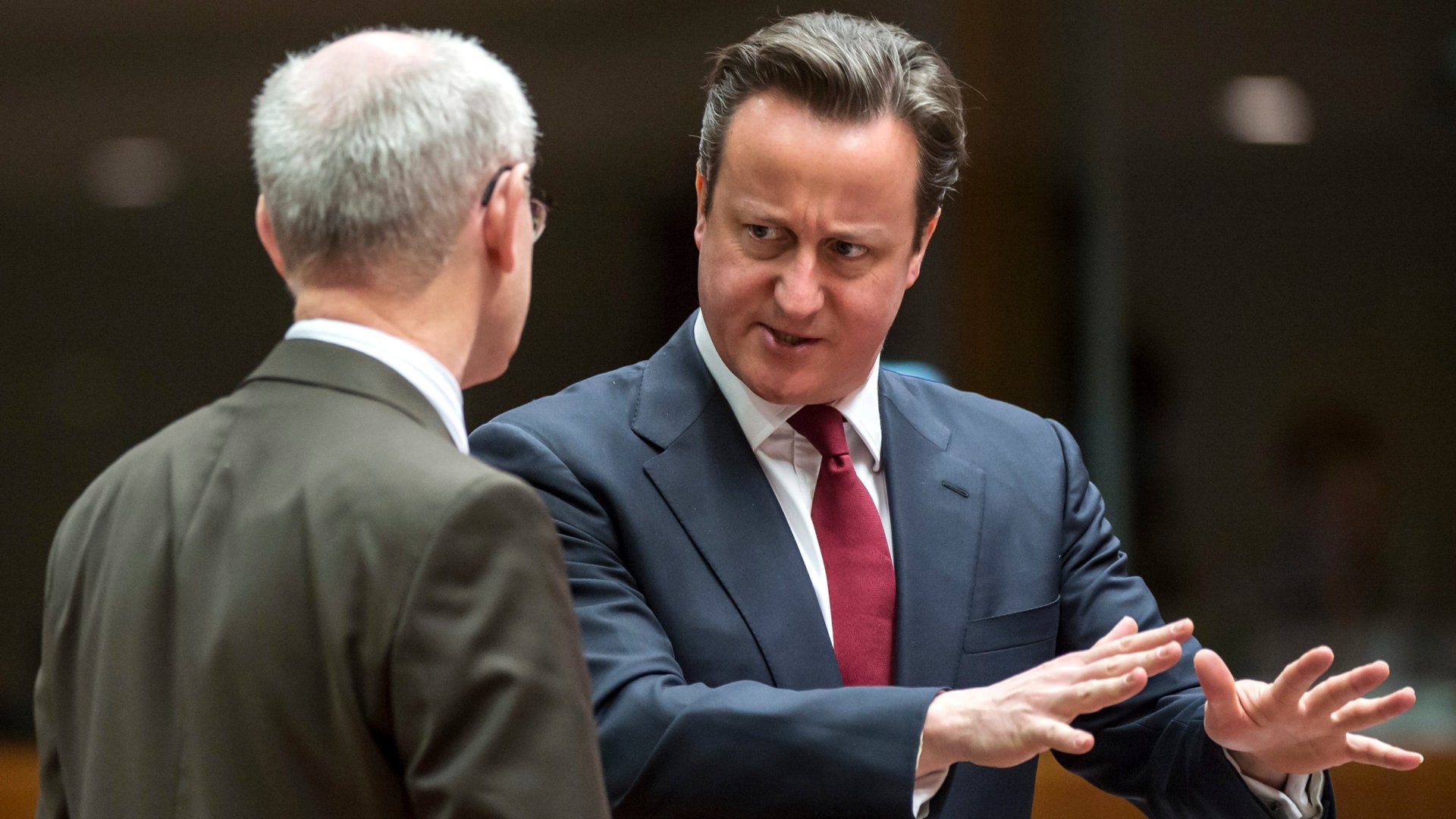What has Britain ever done for the European Union? A lot, actually
The British want to leave the European Union, according to current opinion polls.


The British want to leave the European Union, according to current opinion polls.
Much of the media attention has focused on what the UK would gain or lose from exiting the EU. But, to paraphrase Monty Python, a source of peculiarly and appropriately British humor, what have the British ever done for Europe? The answer is “quite a bit,” and a British departure could be very damaging for Europe and potentially the euro. In fact, there are several areas where the EU has obviously benefitted from the membership of the UK.
Perhaps the most important contribution the UK has made to Europe has been the championing of the single market. In the late 1980s, the UK government under Margaret Thatcher pushed aggressively for the creation of a single market, in spite of the fact that the UK economy has been less integrated with Europe when compared to its continental peers. (The United Kingdom has less intra-European trade than does its European partners, and almost a quarter of the UK value in trade is exported to the United States.) Absent the UK, it seems fair to say that some of the momentum for economic integration would fade.
Most economists would consider the euro to be a failure in economic terms, a fact that was pointed out in a British-led MacDougall report on fiscal integration some 15 years before Maastricht was signed (pdf). However, having decided to implement the euro, the EU still owes something to the British for the technical way in which it was created. The European Union’s monetary committee was chaired by a British official, in spite of the UK’s non-participation in the euro. The UK’s expertise in financial markets led to some critical changes that ensured a smoother integration of the Euro: British-led initiatives included the introduction of legal certainty for contracts (making sure that there was no ambiguity in converting contracts drawn up prior to the introduction of the euro). Having financial expertise can help to avoid disaster—it was the British who pointed out, for instance, that there simply was not time to introduce physical notes and coins in 1999 as the EU intended, and that a gap between the legal and physical introduction of the euro was absolutely essential.
The cost of not having financial expertise on hand is also clear. The British did not participate in the disastrous initial decision on the Cyprus bailout, and were not able to offer observations on the (fairly obvious) consequences of the decision that was taken. Isolating euro decision-making from any UK input has not generally led to good results. The EU undoubtedly benefits from having a global financial center within its borders—when they listen to its advice. Access to global capital via London is also a benefit for the EU. It would be difficult to suggest that any other European financial center could compensate for London.
The UK has also urged Europe to support the process of globalization. Lord Brittan, the Commissioner responsible for EU trade policy during the Uruguay round of trade negotiations, has said that the British government was instrumental in generating a more liberal view on trade. Of course, there are other advocates of free trade within the EU, but the UK has helped promote the cause more aggressively than many other EU members. The widening of the EU (from six before the UK joined, to 27 today) has also been supported by the UK, spreading free trade and the free movement of people across an ever larger part of Europe. This is not just about advocacy—the UK has pushed for changes in the way the EU is financed, albeit often for nationalistic reasons—that have eased the expansion of the union.
David Cameron has declared that, should his party win the next general election, it will be their policy to hold a referendum on Britain’s relationship with Europe in 2017. The idea of a referendum is very popular (but that is because referenda are always very popular, whatever the subject). Over the next few years, opinion polls are likely to remain hostile to EU membership. However, past experience (in particular the 1975 referendum on the same topic) has shown that such hostility tends to fade as the media conduct a more in-depth analysis of the issues. In 1975, public opinion completely turned around over the course of the referendum campaign. If Europe is seen to be working better than at present in four years time, and if some of the UK’s concerns about its national interest have been assuaged, then there is a good chance the referendum will vote in favour of continued membership.
In the 1930s, a common British weather report would read, “Fog in the Channel: Continent cut off.” It is in the interests of both sides that Anglo-European relations enjoy a period of clearer weather.